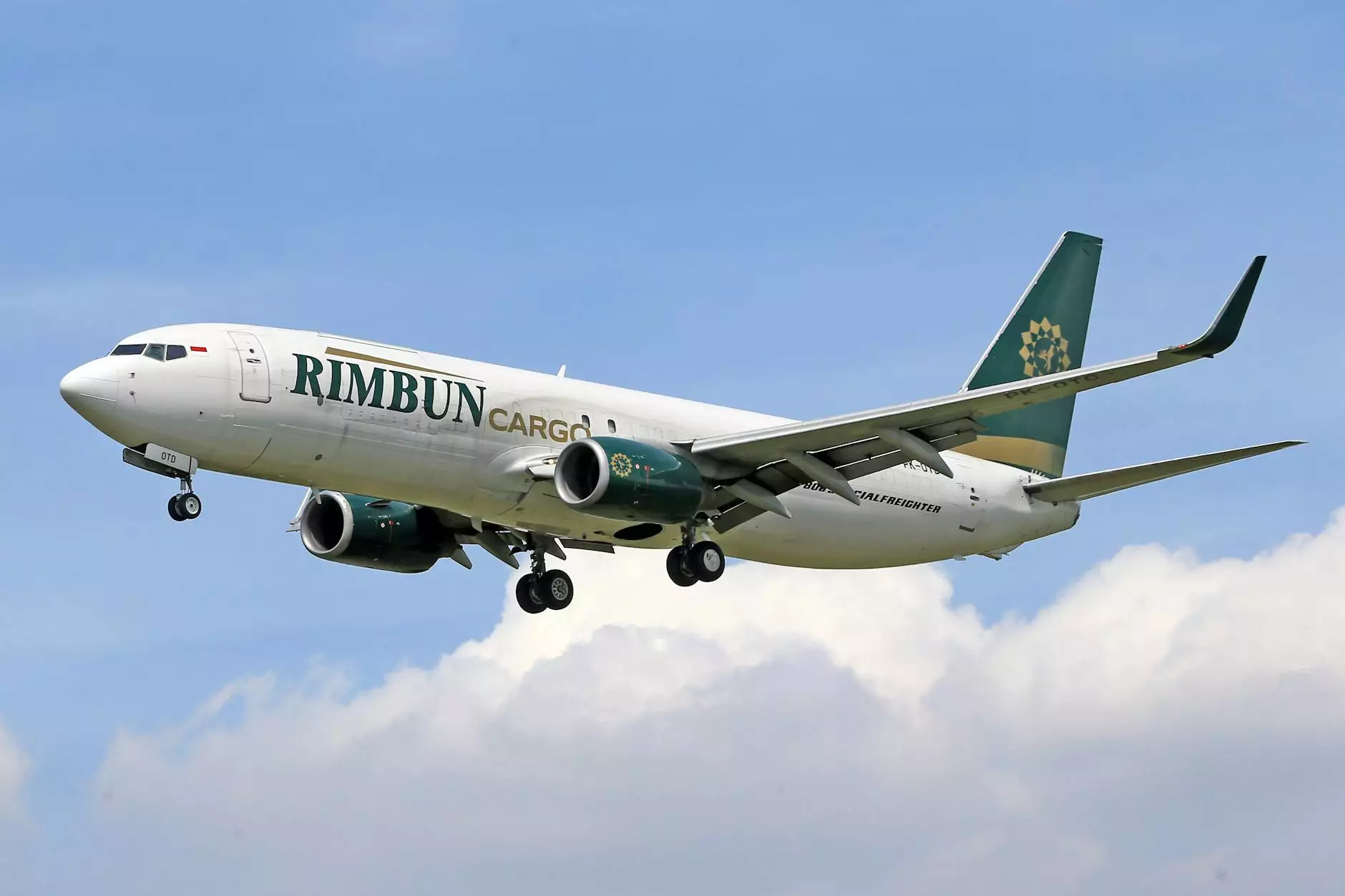Maximizing Business Success with Competitive International Air Cargo Rates

In today's fast-paced global economy, efficient logistics and cost-effective shipping solutions are fundamental to maintaining a competitive edge. The key to achieving this lies in understanding and leveraging the intricacies of international air cargo rates. Whether you are a small business expanding internationally or a multinational corporation managing complex supply chains, mastering the art of optimizing air cargo costs can markedly improve your operational efficiency and profitability.
Understanding the Significance of International Air Cargo Rates
International air cargo rates are the financial parameters that determine the cost of shipping goods via airfreight across borders. These rates influence pricing strategies, customer satisfaction, and overall logistics planning. As shipping demands grow internationally, so does the complexity of pricing, which depends on a multitude of variables including weight, volume, shipment type, destinations, seasons, and carrier policies.
Proper comprehension and strategic management of these rates empower businesses to choose the most advantageous routes, schedules, and service providers, thus enhancing supply chain resilience and cost efficiency. Companies like CargoBooking.aero specialize in providing transparent and competitive international air cargo rates, streamlining the booking process and offering vital insights into global logistics trends.
Factors Influencing International Air Cargo Rates
1. Weight and Volume of Cargo
Fundamentally, air cargo pricing operates on a chargeable weight, which is the greater of the actual weight or volumetric weight. This principle encourages efficient packing and maximizes space utilization within aircraft holds, directly impacting costs.
2. Destination and Origin Airports
The geographical location of shipping and receiving points affects rates significantly. Major international airports such as Dubai International (DXB), Hong Kong (HKG), and Frankfurt (FRA) often offer more competitive rates due to their extensive infrastructure and connectivity. Remote or less-developed airports might incur higher costs due to limited frequency and infrastructure constraints.
3. Seasonal Variations and Market Demand
Peak seasons, such as holidays or harvest seasons in key industries, often lead to surges in demand, driving up international air cargo rates. Conversely, during low-demand periods, rates tend to decrease, providing advantageous opportunities for businesses to ship at reduced costs.
4. Type of Cargo and Special Handling Requirements
Perishable goods, hazardous materials, and valuable commodities require specialized handling, which increases shipping costs. Understanding these nuances helps in negotiating better rates and ensuring compliance with international safety standards.
5. Air Carrier Policies and Fuel Surcharges
Different carriers offer varying rate structures, influenced by operational costs, fleet efficiencies, and fuel prices. Fluctuations in global fuel prices directly impact air freight rates, necessitating continuous monitoring and flexible shipping strategies.
Strategies to Optimize and Secure International Air Cargo Rates
1. Partner with Experienced Freight Forwarders and Booking Platforms
Partnering with seasoned logistics providers like CargoBooking.aero can offer access to bulk-negotiated rates, real-time market data, and comprehensive support. Their expertise helps identify cost-saving opportunities and ensures compliance with international shipping regulations.
2. Leverage Consolidation and Groupage Services
Consolidating multiple shipments into a single freight load reduces costs dramatically. Groupage services allow multiple clients' cargo to share transportation, unlocking economies of scale without compromising delivery times.
3. Flexibility in Shipping Schedules and Routes
Being adaptable with departure dates and routing options can lead to significant savings. Off-peak shipping or alternative airports may offer lower rates, helping your business maintain competitiveness.
4. Optimized Packaging and Documentation
Properly packed cargo minimizes volumetric weight and reduces damage risks, leading to lower charges. Accurate and complete documentation expedites customs clearance, avoiding delays and additional costs.
5. Understand and Utilize Trade Agreements and Tariffs
Regional trade agreements such as NAFTA, EU trade agreements, and bilateral treaties can influence rates. Knowledge of such accords allows businesses to plan shipments strategically, benefiting from reduced tariffs and preferential rates.
The Role of Shipping Centers, Airports, and Transportation Hubs
Shipping Centers and Logistics Hubs
Major shipping centers serve as vital nodes in the international air cargo network. These hubs are equipped with advanced facilities that facilitate faster turnaround times, customs processing, and integrated logistics solutions. Leveraging these centers ensures reliable international air cargo movement at competitive rates.
Airports as Strategic Logistics Points
Strategically located international airports provide unmatched connectivity and transport options. Key airports like John F. Kennedy International Airport (JFK), Shanghai Pudong (PVG), and Singapore Changi (SIN) are not only transportation gateways but also centers for logistical efficiency. Choosing the right airport for pickup or delivery can reduce transit times and costs.
Transportation Networks Supporting Air Cargo
Ground transportation, including trucking, rail, and maritime links, are integral to last-mile delivery and cargo distribution. Well-established transportation networks minimize delays, reduce handling costs, and ensure timely arrivals, optimizing overall shipping expenses.
Emerging Trends and Future Outlook of International Air Cargo Rates
Digital Transformation and Data-Driven Logistics
The adoption of AI, machine learning, and big data analytics is revolutionizing pricing strategies. Real-time rate tracking and predictive analytics enable businesses to forecast costs accurately, plan shipments proactively, and secure the most advantageous rates.
Environmental Sustainability and Eco-Friendly Shipping
With increasing focus on sustainability, airlines are adopting greener technologies. Environmental considerations may influence future pricing structures, with potential incentives for low-emission shipments, aligning cost-effectiveness with corporate responsibility.
Increasing Focus on Security and Compliance
Heightened security protocols at airports and shipping centers lead to additional costs. However, investing in compliance ensures smoother customs procedures, avoiding penalties and delays that could inflate costs.
Concluding Insights: The Business Advantage of Mastering International Air Cargo Rates
Whether expanding into new markets or optimizing existing logistics operations, a deep understanding of international air cargo rates is essential. Strategic planning, leveraging technology, and establishing partnerships with reliable freight experts like CargoBooking.aero empower businesses to minimize costs, maximize efficiency, and achieve sustained growth.
In this highly interconnected world, effective management of air freight costs is no longer optional but a necessity for success in global commerce. By staying informed about industry trends, utilizing advanced booking platforms, and adopting flexible shipping strategies, your business can thrive amidst the competitive landscape of international trade.
Take Action Today
- Explore comprehensive international air cargo rates on CargoBooking.aero.
- Partner with experienced logistics providers for tailored shipping solutions.
- Stay informed about market trends, alternative routes, and emerging technologies.
Final Thoughts
Optimizing international air cargo rates is a multifaceted endeavor that combines market knowledge, strategic partnerships, technological integration, and operational agility. Embracing these principles ensures your business remains responsive, cost-efficient, and ready to capitalize on new opportunities in the global marketplace.
international air cargo rates








